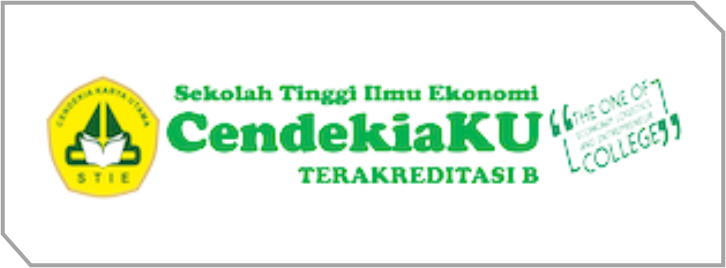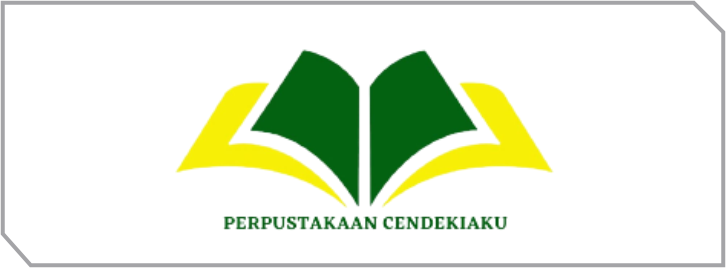MODEL PENINGKATAN KINERJA KARYAWAN MELALUI PEMBERDAYAAN, MOTIVASI, DAN LINGKUNGAN KERJA
DOI:
https://doi.org/10.70375/e-logis.v7i2.109Keywords:
pemberdayaan, motivasi, kinerjaAbstract
Kinerja karyawan menjadi perhatian serius oleh perusahaan, karena dengan kinerja karyawan yang baik dapat meningkatkan hasil yang sangat berdampak pada profit perusahaan. Namun, beberapa prediktor yang dapat membangun kinerja karyawan belum memberikan informasi yang menyeluruh. Tujuan penelitian ini untuk menguji faktor pemberdayaan karyawan, motivasi kerja dan lingkungan karyawan terhadap kinerja karyawan di CV. Anugerah Jaya Beauty Semarang. Menggunakan data 30 karyawan yang ada dianalisis menggunakan regresi berganda, ditemukan bahwa pemberdayaan karyawan, motivasi kerja dan lingkungan karyawan memiliki pengaruh yang signifikan dan positif terhadap kinerja karyawan. Temuan ini berkontribusi pada pengembangan SDM melalui pemberdayaan dan penguatan motivasi karyawan. Aspek komunikasi antar anggota organisasi dan pemenuhan alat kerja juga menjadi elemen penting dalam variabel lingkungan kerja. Para manajer dapat memperhatikan ketiga variabel prediktor dalam penelitian ini untuk meningkatkan kinerja karyawan.
References
Adha, R. N., Qomariah, N., & Hafidzi, A. H. (2019). Pengaruh Motivasi Kerja, Lingkungan Kerja, Budaya Kerja Terhadap. Jurnal Penelitian Ipteks, 4(1), 47–62. http://jurnal.unmuhjember.ac.id/index.php/PENELITIAN_IPTEKS/article/view/2109/1736
AlKahtani, N. S., Iqbal, S., Sohail, M., Sheraz, F., Jahan, S., Anwar, B., & Haider, S. A. (2021). Impact of employee empowerment on organizational commitment through job satisfaction in four and five stars hotel industry. Management Science Letters, 11, 813–822. https://doi.org/10.5267/j.msl.2020.10.022
Andika, R., & Darmanto, S. (2020). the Effect of Employee Empowerment and Intrinsic Motivation on Organizational Commitment and Employee Performance. Jurnal Aplikasi Manajemen, 18(2), 241–251. https://doi.org/10.21776/ub.jam.2020.018.02.04
Anwar, G., & Abdullah, N. N. (2021). The impact of Human resource management practice on Organizational performance. International Journal of Engineering, Business and Management, 5(1), 35–47. https://doi.org/10.22161/ijebm.5.1.4
Badrianto, Y., & Ekhsan, M. (2019). Effect of Work Environment and Job Satisfaction on Employee Performance in Pt. Nesinak Industries. Management, and Accounting, 2(1), 85–91. http://e-journal.stie-kusumanegara.ac.id
Baird, K., Tung, A., & Su, S. (2020). Employee empowerment, performance appraisal quality and performance. Journal of Management Control, 31(4), 451–474. https://doi.org/10.1007/s00187-020-00307-y
Barney, J. B. (2001). Resource-based theories of competitive advantage: A ten-year retrospective on the resource-based view. Journal of Management, 27(6), 643–650. https://doi.org/10.1177/014920630102700602
Bose, I. (2018). Employee Empowerment and Employee Performance: An Empirical Study on Selected Banks in UAE. Journal of Applied Management and Investments, 7(2), 71–82. https://doi.org/10.13140/RG.2.2.23260.69765
Chien, G. C. L., Mao, I., Nergui, E., & Chang, W. (2020). The effect of work motivation on employee performance: Empirical evidence from 4-star hotels in Mongolia. Journal of Human Resources in Hospitality and Tourism, 19(4), 473–495. https://doi.org/10.1080/15332845.2020.1763766
Cronbach, L. J. (1946). Response sets and test validity. Educational and Psychological Measurement, 6(4), 475–494. https://doi.org/10.1177/001316444600600405
Dobre, O. . (2013). Employee motivation and organizational performance. Review of Applied Socio- Economic Research, 5(1), 53–60.
Dulloh, M., Limgiani, L., & Suwardi, L. A. (2024). Analyze the work environment to improve employee performance. Revenue Journal: Management and Entrepreneurship, 1(2), 127–134. https://doi.org/10.61650/rjme.v2i1.3
Ghozali, I. (2018). Aplikasi Analisis Multivarieta Dengan Progtam IBM SPSS 25. Semarang: Semarang: Badan Penerbit Universitas Diponogoro.
Hair, J., Black, W., Babin, B., Anderson, R. and Tatham, R. (2009). Multivariate Data Analysis, 7th ed. Pearson Prentice Hall,.
Hamali, A. Y. (2013). Pengaruh Motivasi terhadap Produktivitas Kerja: Studi Kasus pada PT X Bandung. Journal The Winners, 14(2 SE-), 77–86. https://doi.org/10.21512/tw.v14i2.647
Ibrahim, M., & Brobbey, V. A. (2015). Impact of motivation on employee performance. International Journal of Economics, Commerce and Management. International Journal of Economics, Commerce and Management., 3(11), 1221.
Kuswati, Y. (2020). The Effect of Motivation on Employee Performance. Budapest International Research and Critics Institute (BIRCI-Journal): Humanities and Social Sciences, 3(2), 995–1002. https://doi.org/10.33258/birci.v3i2.928
Lestary, L., & Harmon, H. (2017). Pengaruh Lingkungan Kerja terhadap Kinerja Karyawan. Jurnal Riset Bisnis Dan Investasi, 3(2), 94–103. https://doi.org/10.35697/jrbi.v3i2.937
Liana, W. (2020). Pengaruh Motivasi terhadap Produktivitas Karyawan PT Telkom Indonesia, Tbk Cabang Palembang. Jurnal Nasional Manajemen Pemasaran & SDM, 1(01), 65–72. https://doi.org/10.47747/jnmpsdm.v1i01.25
Migdadi, M. M. (2022). Knowledge management processes, innovation capability and organizational performance. International Journal of Productivity and Performance Management, 71(1), 182–210. https://doi.org/10.1108/IJPPM-04-2020-0154
Mislan Sihite. (2018). kompetensi, SDM, daya saing. Jurnal Ilmiah Methonomi, 4, 145–159.
Prabawa, I. M. A., & Supartha, I. W. G. (2017). Meningkatkan Produktivitas Karyawan Melalui Pemberdayaan, Kerja Sama Tim dan Pelatihan di Perusahaan Jasa. E-Jurnal Manajemen Universitas Udayana, 7(1), 497. https://doi.org/10.24843/ejmunud.2018.v7.i01.p19
Prakoso, R. D. (2014). Pengaruh Lingkungan Kerja Terhadap Motivasi Kerja Dan Kinerja Karyawan (Studi Pada Karyawan PT. Axa Financial Indonesia Cabang Malang). Jurnal Administrasi Bisnis S1 Universitas Brawijaya, 14(2).
Pramiswari, A. I., Setianigsih, W. E., & Wibowo, Y. G. (2022). Pengaruh Kompensasi, Motivasi, Dan Lingkungan Kerja Terhadap Produktivitas Kerja Karyawan Pt. Industri Gula Glenmore Banyuwangi. Journal of Business Economics and Finance, 4(2), 137–145.
Putra Tampi, P., Diana Nabella, S., & Sari, D. P. (2022). The Influence of Information Technology Users, Employee Empowerment, and Work Culture on Employee Performance at the Ministry of Law and Human Rights Regional Office of Riau Islands. Enrichment: Journal of Management, 12(2), 1620–1628.
Ramadhan, G. (2018). Analisis Hubungan Profesionalisme Kerja Pegawai terhadap Kinerja Pegawai pada Kantor Dinas Kependudukan dan Pencatatan Sipil Kota Banjarmasin. Jurnal Administrasi Publik, 1(15), 1–9.
Rivaldo, Y., & Nabella, S. D. (2023). Employee Performance: Education, Training, Experience and Work Discipline. Quality - Access to Success, 24(193), 182–188. https://doi.org/10.47750/QAS/24.193.20
Samwel, J. O. (2019). The Effect of Employee Relations on Organizational performance. International Journal of Economics, Business and Management Research Vol., 2(04), 75. www.ijebmr.com
Shin, J., Mollah, M. A., & Choi, J. (2023). Sustainability and Organizational Performance in South Korea: The Effect of Digital Leadership on Digital Culture and Employees’ Digital Capabilities. Sustainability (Switzerland), 15(3).
Suryadewi, M. D., Sintaasih, D. K., & Giantari, I. G. A. K. (2020). Pengaruh Motivasi, Kompensasi dan Disiplin Kerja terhadap Produktivitas Kerja Karyawan. E-Jurnal Manajemen Universitas Udayana, 9(9). https://doi.org/10.24843/EJMUNUD.2020.v09.i09.p04
Yusuf Iis, E., Wahyuddin, W., Thoyib, A., Nur Ilham, R., & Sinta, I. (2022). the Effect of Career Development and Work Environment on Employee Performance With Work Motivation As Intervening Variable At the Office of Agriculture and Livestock in Aceh. International Journal of Economic, Business, Accounting, Agriculture Management and Sharia Administration (IJEBAS), 2(2), 227–236. https://doi.org/10.54443/ijebas.v2i2.191
Zhenjing, G., Chupradit, S., Ku, K. Y., Nassani, A. A., & Haffar, M. (2022). Impact of Employees’ Workplace Environment on Employees’ Performance: A Multi-Mediation Model. Frontiers in Public Health, 10(May). https://doi.org/10.3389/fpubh.2022.890400








